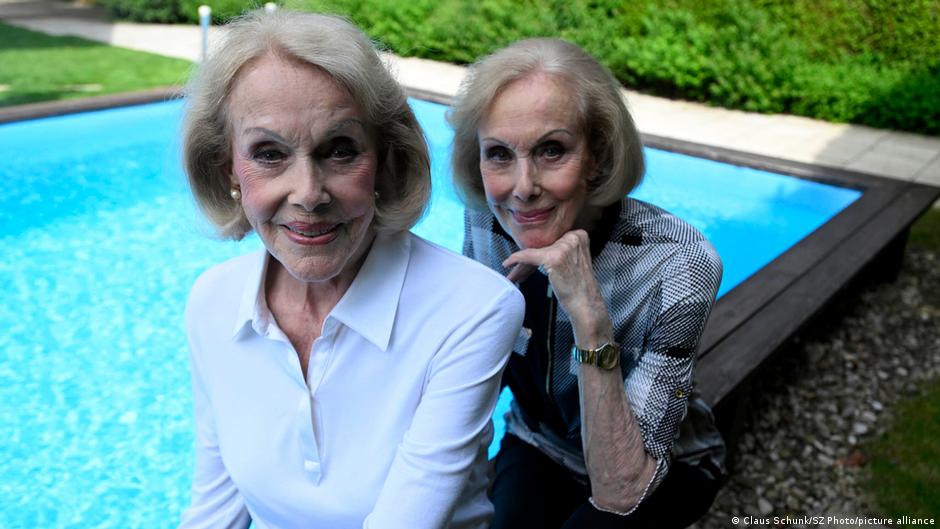The passing of German entertainers Alice and Ellen Kessler has reignited discussions on assisted suicide in Germany. A significant portion o...
The passing of German entertainers Alice and Ellen Kessler has reignited discussions on assisted suicide in Germany. A significant portion of the debate focuses on organizations that support physician-assisted dying.

The passing of entertainers Alice and Ellen Kessler, who were 89 years old, on November 17 at their residence in the Grünwald neighborhood of Munich has led to renewed demands forrevising Germany's laws on assisted dying. The twin sisters are said to have arranged a combined assisted suicide.
"Their wish to end their lives was carefully thought through, longstanding, and not influenced by any mental health emergency," stated Wega Wetzel, a representative from the German Society for Humane Dying (DGHS), an organization based in Berlin that supports assisted dying.
The German Caritas Association expressed concern that the "romanticized" portrayal of the Kesslers' deaths in the media could heighten societal pressure, which it has noticed in recent years. "Older women, especially, feel obligated not to be a burden on others and view assisted suicide as a necessary option to consider," stated Eva Maria Welskop-Deffaa, president of Caritas, in a statement on the organization's website.
The declaration also advocated for a prohibition on advertising by groups that provide support for suicide, alongside additional legal measures regarding assisted suicide.

The official suicide statistics in Germany do not include data on assisted suicides. According to the DGHS, approximately 1,200 individuals across the country died with the assistance of suicide supporters in 2024. Furthermore, around 200 additional cases involved assisted dying conducted by individual physicians.
As per the German Statistical Office, 10,372 suicide cases were documented in 2024. This marked an increase of 7.1% compared to the average over the past ten years. Much like previous years, suicides made up 1% of all causes of death.
Demand to prohibit advertising for assisted dying services
The passing of the Kessler sisters has brought attention to a major point of disagreement within Germany's current legal structure for assisted dying, which was set by a 2020 decision from the Federal Constitutional Court.
Earlier, Section 271 of the criminal code — introducedafter extensive discussion in 2015— made assisted dying nearly impossible in Germany, as it stated that anyone who helped someone end their life could face imprisonment for up to three years. It also prohibited the "commercial promotion of suicide."
Nevertheless, this was disputed in court by multiple individuals who are terminally ill, claiming they were unfairly denied the right to end their lives on their own terms if they no longer desired to continue living.
It remains illegal for an individual to intentionally provide a lethal medication to someone who wants to end their life. This act is classified as active euthanasia and is a criminal offense that can result in a prison sentence ranging from six months to five years.
However, the decision made by the Constitutional Court recognized the basic right to a self-determined end of life and removed criminal penalties for assisted suicide. This implies that anyone assisting a person who has decided to end their own life cannot face punishment — provided that the individual ending their life makes this choice voluntarily and takes full accountability for it.
The question of how to define "free responsibility" has long been a topic of intense discussion within the medical community, the German Federal Parliament, and civil society. It remains unclear whether the necessary conditions are fulfilled, and there is no established process in Germany for verifying this. "This is exactly the issue," said Helmut Frister, head of the German Ethics Council, during an interview with public broadcaster RBB, calling for legislation focused on preventing suicide.
He claimed that a process must be established to determine if an individual is acting freely and responsibly when choosing to end their life. As Frister stated, this should involve independent counseling from someone not affiliated with an organization that provides suicide assistance.
The Kessler case may lead to changes in the law
Lukas Radbruch, a prominent physician specializing in palliative care in Germany, highlighted the issue of organizations that provide guidance on end-of-life decisions also being responsible for performing or facilitating assisted suicide.
"The issue with consultations at assisted dying organizations is that individuals are more likely to receive guidance on the method, rather than assistance in deciding whether to proceed," he stated to Articlepedia Today2023.
Three groups are currently active in Germany, providing support for individuals considering suicide. Prospective members must apply, participate in counseling sessions, and might not be given medication during the initial months of their paid membership.
Former Health Minister Karl Lauterbach from the center-left Social Democratic Party stated to theRheinische Posta newspaper stating that the present circumstances are ethically unacceptable since it is unclear "whether those who follow this route may be affected by mental health conditions that hinder their decision-making capacity."
In 2023, members of the German Bundestag discussed potential rules on assisted dying, passing by a significant majority a resolution aimed at enhancing suicide prevention efforts. This year, the government has introduced a draft law focused on preventing suicides. The ongoing discussion might lead to its approval by the legislative body.
Editor's note: If you are experiencing significant emotional stress or have thoughts of suicide, don't wait to contact a professional. You can discover resources for assistance, regardless of your location around the globe, on this website:https://www.befrienders.org/
Edited by: Rina Goldenberg
While you're here: Each Tuesday, the Articlepedia Today team summarizes developments in German politics and society. You can subscribe here for the weekly email newsletter Berlin Briefing.
Author: Helen Whittle



